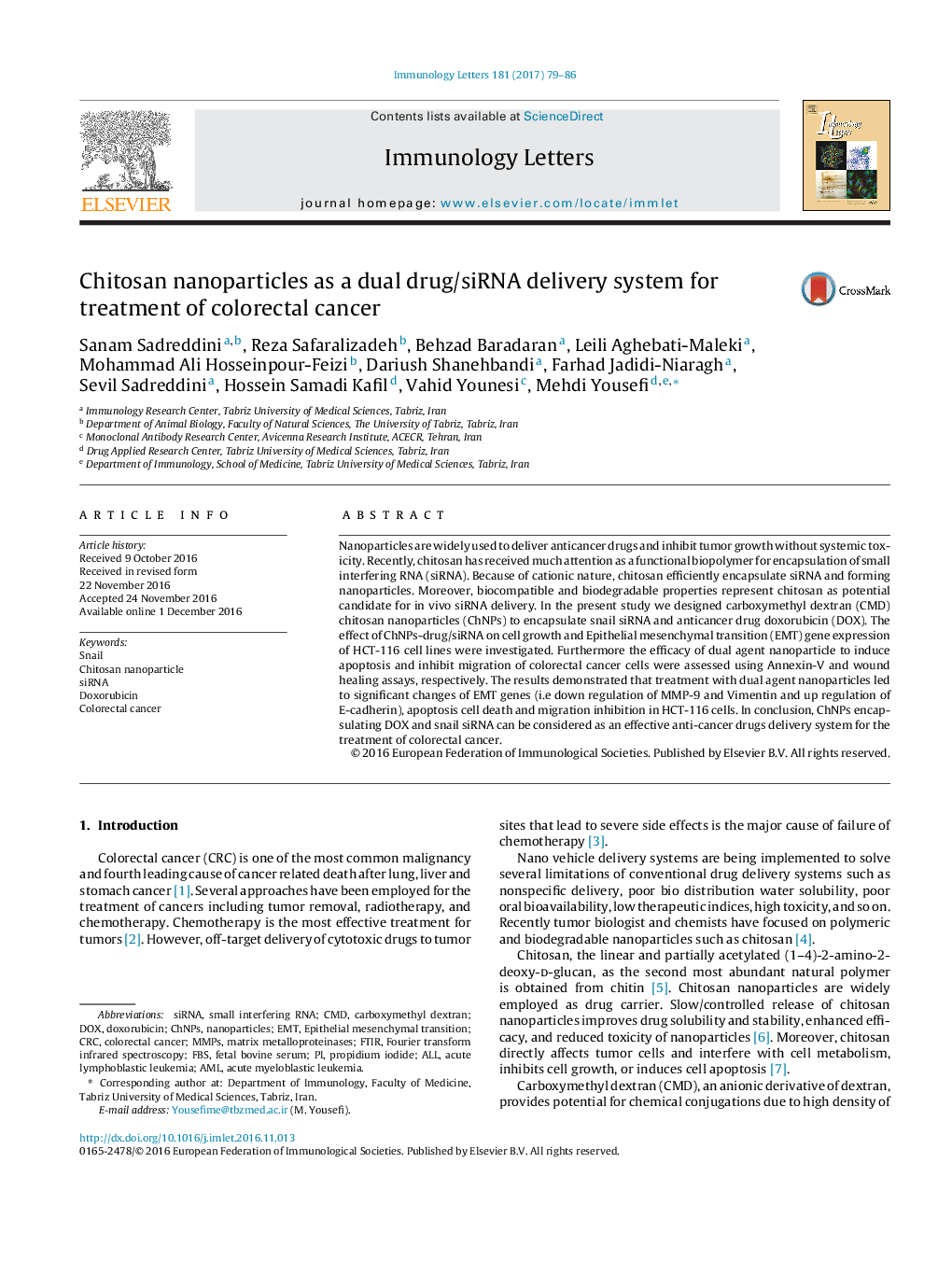| Article ID | Journal | Published Year | Pages | File Type |
|---|---|---|---|---|
| 5666615 | Immunology Letters | 2017 | 8 Pages |
â¢Recently tumor biologists and chemists have focused on polymeric and biodegradable nanoparticles such as chitosan.â¢In the present study we designed and synthesized a chitosan based nanoparticles, ChNPs, to deliver doxorubicin (DOX), and Snail siRNA to HCT-116 colorectal cancer cells.â¢Our findings confirmed that using dual delivery of DOX and Snail siRNA using ChNPs inhibited growth, proliferation and migration of HCT-116 cells.
Nanoparticles are widely used to deliver anticancer drugs and inhibit tumor growth without systemic toxicity. Recently, chitosan has received much attention as a functional biopolymer for encapsulation of small interfering RNA (siRNA). Because of cationic nature, chitosan efficiently encapsulate siRNA and forming nanoparticles. Moreover, biocompatible and biodegradable properties represent chitosan as potential candidate for in vivo siRNA delivery. In the present study we designed carboxymethyl dextran (CMD) chitosan nanoparticles (ChNPs) to encapsulate snail siRNA and anticancer drug doxorubicin (DOX). The effect of ChNPs-drug/siRNA on cell growth and Epithelial mesenchymal transition (EMT) gene expression of HCT-116 cell lines were investigated. Furthermore the efficacy of dual agent nanoparticle to induce apoptosis and inhibit migration of colorectal cancer cells were assessed using Annexin-V and wound healing assays, respectively. The results demonstrated that treatment with dual agent nanoparticles led to significant changes of EMT genes (i.e down regulation of MMP-9 and Vimentin and up regulation of E-cadherin), apoptosis cell death and migration inhibition in HCT-116 cells. In conclusion, ChNPs encapsulating DOX and snail siRNA can be considered as an effective anti-cancer drugs delivery system for the treatment of colorectal cancer.
